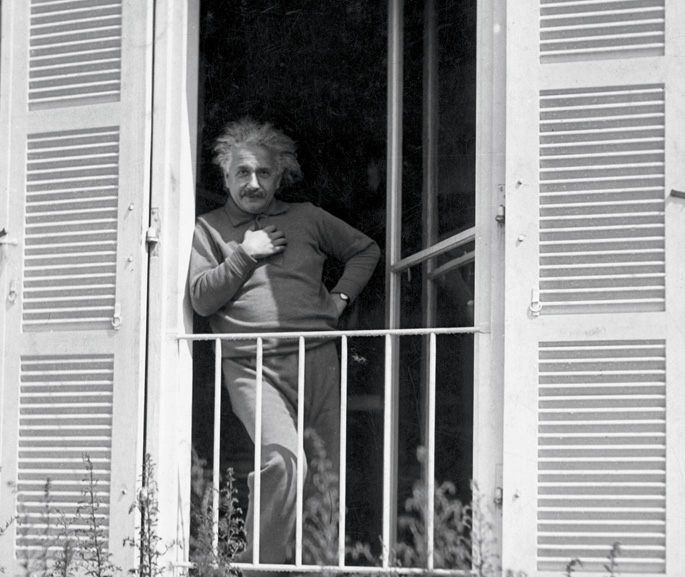A Home for Einstein

Albert Einstein was a man without a permanent home. He twice renounced citizenship to Germany, where he was born, once in 1896 and again in 1933. He held a Swiss passport for most of his life, but left Switzerland for good after fifteen years and almost as many addresses. In between, during a teaching appointment in Prague, he was briefly a subject of the Austro-Hungarian Empire. Although he later took his oath as an American citizen, he remained an intellectual refugee who never felt at home with the English language. Einstein called himself a bird of passage, and he was always on the search for favorable climes.
Only once did Einstein try to build his own nest, and had circumstances not forced him to leave it would have remained his home of choice. He called his house in Caputh a paradise, his Hausle, a place to go and leave ones cares behind. Although the house is often called a summer home, Einstein lived there for all but the coldest months. From April to November he left his country retreat only to attend lectures or make public appearances. Einstein often said and his friends and family often confirmed that he never felt more comfortable and at ease than when there.
Capuths setting in the rural lake region southwest of Berlin provided a contrast to the bustle of the city. Einstein liked to go sailing on the villages lakes and take long, solitary walks in the surrounding forests. Its location also made the house a refuge from social convention. Guests accustomed to the formalities practiced at the Prussian Academy of Sciences, whose members addressed each other as Your Excellency, would be surprised to find a bare-footed and bare-chested Einstein greeting them at the door. When his wife once begged him to get dressed before the arrival of a delegation of dignitaries, Einstein responded, if they want to see me, I am here. If they want to see my clothes, you can open the closet. The only thing his paradise lacked, he told a friend, was an archangel whose burning sword could repel nagging visitors. In lieu of a heavenly gatekeeper, Einstein decided to do without a telephone. People came unannounced anyway.
Not everyone was unwelcome, however. Einstein regularly invited scientists, activists, writers, philosophers, journalists, and artists many of whom counted among his close friends to join him in Caputh. Although the atmosphere was informal, the topics of conversation were by no means lightweight, and extended from quantum theory, war, and racism to religion, politics, and Zionism. Interdisciplinary avant la lettre, the socially engaged discussions at Einstein´s house became the very model that the Einstein Forum, sixty years later, was founded to recreate.